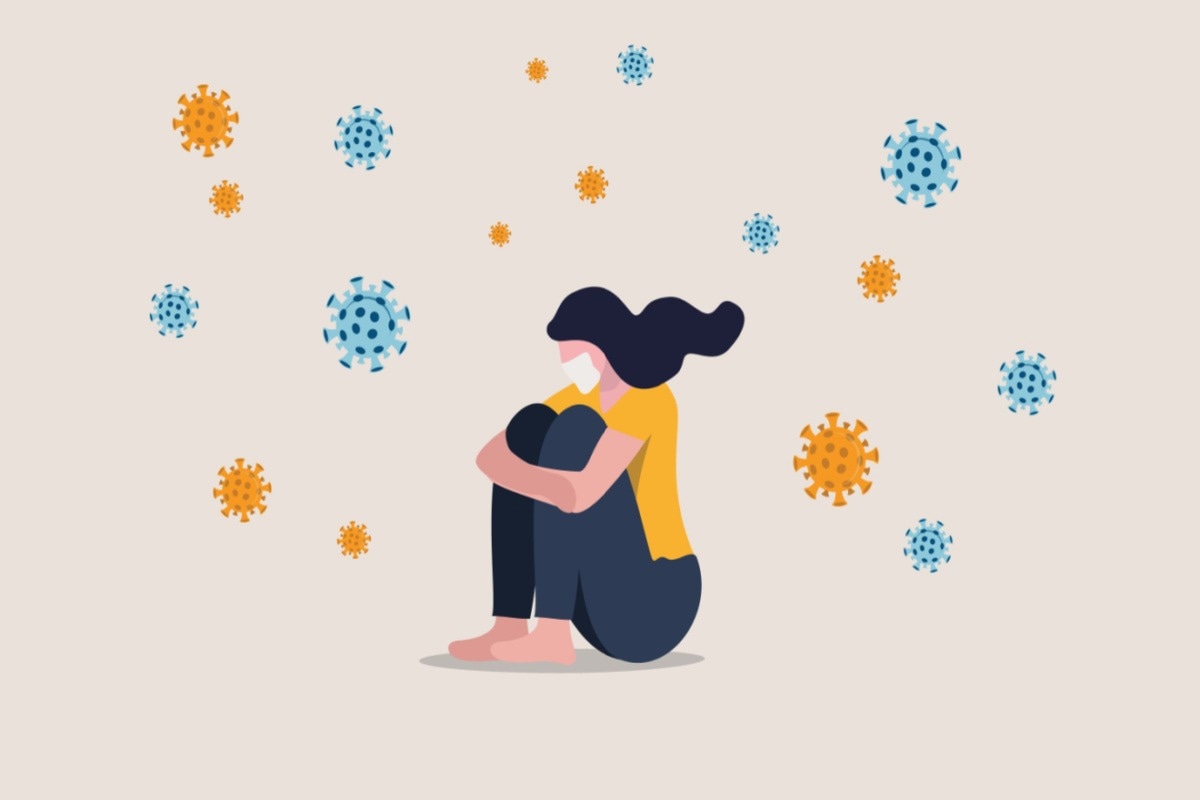Scientists worldwide have recently conducted a large-scale survey to investigate the impact of the coronavirus disease 2019 (COVID-19) pandemic on mental health issues in low-to-middle income countries.

Significant seasonal variation in mental health conditions has been observed during the pandemic. A detailed survey report is currently available on the medRxiv* preprint server.
Background
The COVID-19 pandemic caused by severe acute respiratory syndrome coronavirus 2 (SARS-CoV-2) has severely hit the global healthcare system and economy, with the highest impact in low- and middle-income countries. The pandemic has caused more than 572 million infections and over 6.3 million deaths worldwide.
A considerable economic deprivation together with the fear of COVID-19 related morbidity and mortality has increased mental health issues, including anxiety, stress, depression, and anguish, in the global general population throughout the pandemic. Moreover, pandemic-related movement restrictions and lockdowns have added extra burden on mental health conditions.
In the current study, the scientists conducted several rounds of pre- and during-pandemic surveys in eight low-to-middle income countries to understand the impact of COVID-19 pandemic on mental health conditions.
Study design
The surveys were conducted on 21,162 individuals from eight low-to-middle income countries, including Asian, African, and South American countries (Bangladesh, Nepal, Colombia, Democratic Republic of the Congo, Kenya, Nigeria, Rwanda, and Sierra Leone). Many rounds of surveys were done in pre-pandemic and during-pandemic periods.
The findings of the surveys were correlated with the timing of lean season and onset of the pandemic. In agricultural regions of low-to-middle income countries, lean season refers to the period between planting and harvesting when income and food insecurities increase due to lack of job opportunities and crop scarcities.
Seasonal variation in mental health conditions
The seasonal variation in depression was assessed by specifically focusing on two countries, namely, Nepal and Kenya. The survey findings of both countries showed a positive tread in mental health status before the onset of the COVID-19 pandemic.
In Nepal, mental health status in the initial phase of the pandemic (April 2020) was considerably lower than the pre-pandemic average. However, it improved with the progression of pandemic. No significant difference in food security was observed between the pre- and post-lean season period (between April and October of a typical year).
In kenya, a contrasting trend was observed, which demonstrated a significant improvement in food security in October of a typical year compared to that in April. Considering the seasonal food security trend, the survey analysis revealed that the improvement in mental health status observed with the progression of the pandemic is not solely due to the declining effects of the pandemic. Seasonal food security also contributes significantly to this improvement.
Mental health outcomes
Two time periods were included in the survey analysis to understand the impact of COVID-19 pandemic on mental health. While a time period of 0 – 4 months after the onset of the pandemic was considered to assess the short-term impact of the pandemic, a more persistent impact was determined by considering a time period of more than four months after the pandemic onset.
During the initial phase of the pandemic (within four months), a significant decline in mental health status was observed across the surveyed countries. However, an improving trend in mental health was observed with the progression of the pandemic (after four months).
After adjusting for seasonal variation in mental health status, the findings revealed a significant long-lasting negative impact of the pandemic on mental health.
Study significance
The current large-scale survey conducted in multiple low-to-middle countries highlights the significant negative impact of COVID-19 pandemic on mental health issues, especially depression. This observation holds significance even after adjusting for seasonal fluctuations in mental health status and timing of the pandemic's onset.
Notably, the study demonstrates a clear association between food insecurity and poor mental health status. Based on this observation, the scientists indicate that the actual impact of the pandemic on mental health status in agricultural societies can only be determined by considering seasonal fluctuations.
Moreover, the researchers highlight the need for increasing affordability and accessibility of mental health support services in low-to-middle income countries to reduce the risk of long-term mental health consequences during the COVID-19 pandemic.
*Important notice
medRxiv publishes preliminary scientific reports that are not peer-reviewed and, therefore, should not be regarded as conclusive, guide clinical practice/health-related behavior, or treated as established information.
- Aksunger N. 2022. The Effect of the COVID-19 Pandemic on Mental Health in Low and Middle Income Countries. medRxiv. doi: https://doi.org/10.1101/2022.07.29.22278182 https://www.medrxiv.org/content/10.1101/2022.07.29.22278182v1
Posted in: Medical Science News | Medical Research News | Disease/Infection News
Tags: Anxiety, Coronavirus, Coronavirus Disease COVID-19, covid-19, Depression, Food, Healthcare, Mental Health, Mortality, Pandemic, Respiratory, SARS, SARS-CoV-2, Severe Acute Respiratory, Severe Acute Respiratory Syndrome, Stress, Syndrome

Written by
Dr. Sanchari Sinha Dutta
Dr. Sanchari Sinha Dutta is a science communicator who believes in spreading the power of science in every corner of the world. She has a Bachelor of Science (B.Sc.) degree and a Master's of Science (M.Sc.) in biology and human physiology. Following her Master's degree, Sanchari went on to study a Ph.D. in human physiology. She has authored more than 10 original research articles, all of which have been published in world renowned international journals.
Source: Read Full Article
